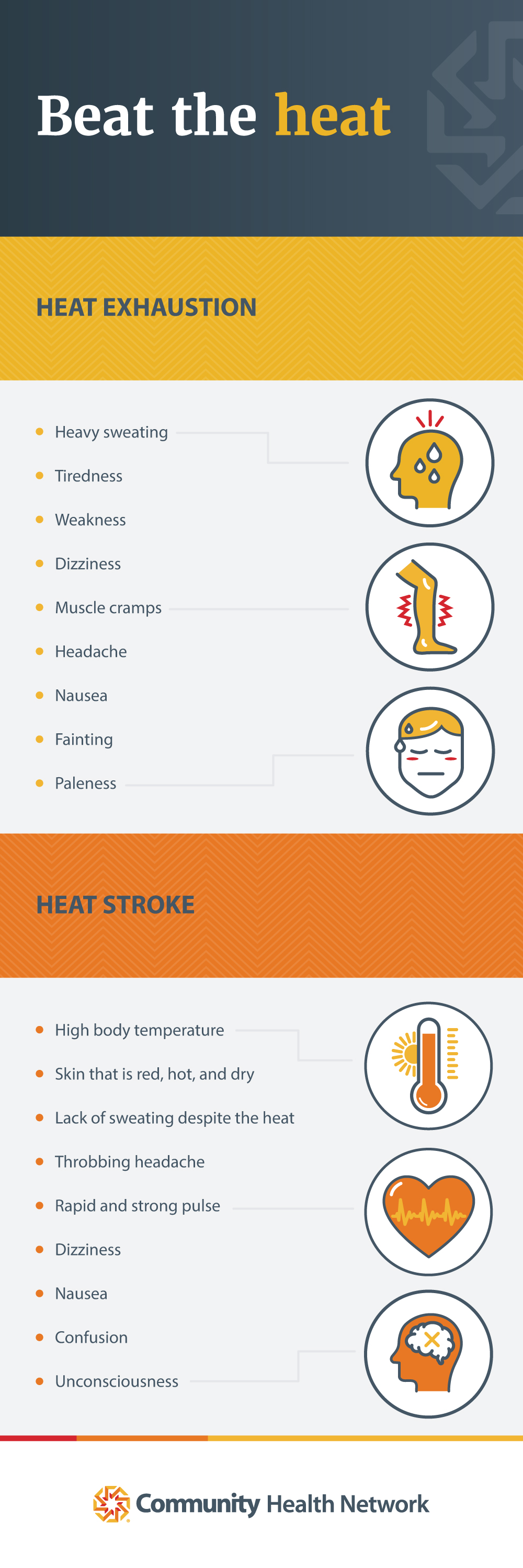The summer can bring scorching heat that increases your risk for heat exhaustion and heat stroke. But what’s the difference between these two heat-related illnesses?
Heat Exhaustion
"Heat exhaustion is a form of heat related illness that develops after a period of exposure to high temperatures, and inadequate fluid intake," said Courtney Nichols, PharmD.
Symptoms may include:
- Heavy sweating
- Paleness
- Muscle cramps
- Tiredness
- Weakness
- Dizziness
- Headache
- Nausea
- Fainting
When asked how to treat heat exhaustion Nichols said, "What you need to do is to cool the body down by drinking cool, nonalcoholic beverages. The victim also needs to rest, take a cool shower, seek an air-conditioned environment, and wear lightweight clothing."
In cooling the body down you can prevent heat exhaustion from progressing to heat stroke.
Heat Stroke
Heat stroke is the most serious heat-related illness. This happens when the body cannot control its own temperature, and the mechanisms your body uses to produce sweat stop working properly. This can lead to death or permanent disability.
If the victim progresses to heat stroke, he or she will exhibit one of the following symptoms:
- Extremely high body temperature
- Lack of sweating despite the heat
- Skin that is red, hot, and dry
- Rapid and strong pulse
- Throbbing headache
- Dizziness
- Nausea
- Confusion
- Unconsciousness
"If this happens, call for immediate medical assistance, and get the victim to a shady or air conditioned area and begin cooling the victim rapidly," said Nichols. "This can be done using whatever methods are available, such as a garden hose or a tub of cool water."
Monitor the temperature if possible, and continuing cooling efforts until the temperature is below 102ºF. Be smart, and keep yourself hydrated. Avoiding strenuous outdoor activity in high temperatures can also reduce your risk of heat exhaustion and heat stroke.

Check out the CDC's FAQ for more information.

